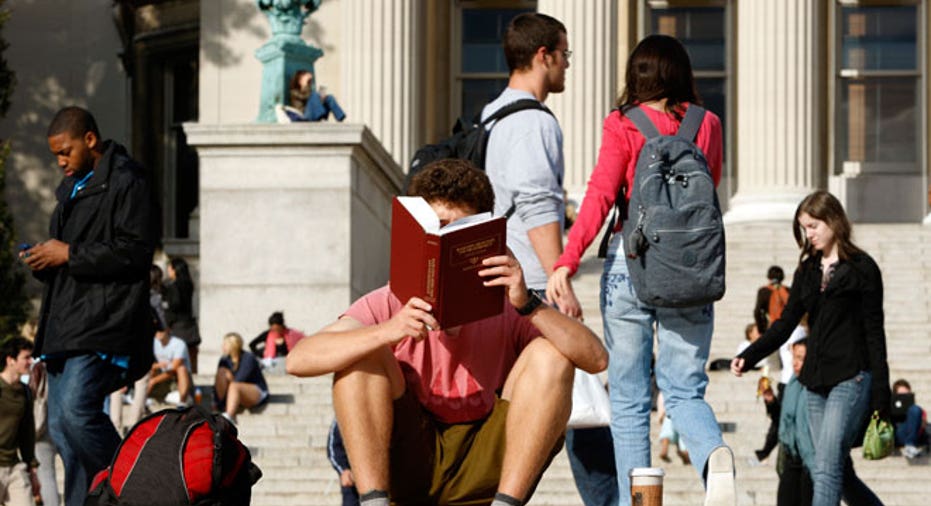4 Questions to Ask on a College Campus Tour

Visiting colleges is a crucial step in the school selection process. After all, every campus can look nice and every teacher professional in a brochure. But touring the grounds and sitting in on classes can provide potential students more insight on whether they would succeed at a particular school.
According to UCLA’s 2012 annual survey of first-year college students on the factors that influenced their decision to attend a particular college, the top five reasons were academic reputation (63.8%), employment rate of alumni (55.9%), financial assistance (45.6%), cost of attending (43.3%) and visiting the campus in person (41.8%).
A tour provides a closer look at campus amenities, academic departments and dorm and social life. Tours also allow students to get personalized advice, but asking the right questions is crucial, says Laura Sestito, production and editorial coordinator at NextStepU.
“If you go to a campus expecting just to ‘know’ what your experience would be like if you went there, that's not nearly enough,” she says. “Seek out admissions representatives, financial aid staff members, a professor in your desired major, anyone who can help you learn more about the school, the programs it offers, and how you can get in there.”
Although a campus tour showcases the college’s facilities and gives families a chance to ask questions, students should go beyond the basics and try to experience the college as if they were currently attending, suggests Jerry Slavonia, CEO of Campus Explorer.
“Walk around, check out bulletin boards, read the school newspaper, have lunch on campus, sit in on a class, and talk with current students--immersing yourself is the best way to see if a school is a good fit,” he says.
To help parents and students get the most out of their visit, here are four questions experts say to ask during a campus tour.
Question 1: What is a Typical Class Like?
Students must consider their personal learning style to increase their chances of academic success, as the college classroom experience can range from 20-person classes to large lecture halls with hundreds of students, says Slavonia.
“The class setting can change the dynamics between students and instructors, directly affecting how a student learns; always ask about the class sizes, office hours and discussion sections to accompany lectures,” he says.
Question 2: What Academic/Career Resources are Available?
Access to on-campus resources is one of the biggest perks of being a student, yet most undergrads don’t take full advantage of them until much later in their college careers, say the experts.
Ask about specific departments such as academic advising, the campus career center and the study abroad office to discover the extent of support the school offers, says Michael Mobley, senior director of Admissions at Bellevue University.
“Career resources can help students find part time work while attending school, internships for classes, jobs once they graduate, and so on--schools should be genuinely concerned with the success of their students post-graduation,” he says. “If you feel at the time of the tour that the university does not support your needs or the needs of your child, you may want to look at other schools as a comparison.”
Question 3: What is it Like to Live on Campus?
A tour of on-campus facilities will likely consist of a sample dorm room, the dining hall(s) and a few academic classrooms and labs.
While a tour is the first step to getting a feel for student life and campus environment, it won't paint the whole picture and students should seek out ways to get additional exposure, suggests Sestito.
“You probably won't see any on-campus activities or groups so it's important to ask about what opportunities are available,” she says. “Your best bet is to come back at a later time and explore campus yourself or do an overnight visit to get a first-hand look at what students do outside of the school day.”
Equally as important as academic and financial considerations, students should also ask about the school’s social scene, says Mobley.
“Students who give tours of campus are typically involved in many activities on campus or are aware of them--they can show you where they like to relax and have fun in their spare time and tell you about the local community.”
Question 4: Why Did You Choose this School?
Potential students should ask current students why they chose this particular institution or what aspects they like/dislike about the school to get an insider’s perspective.
Families should be aware that the tour guide is hired by the college to give tours to prospective students and may have to filter their responses to shed the best light on their school, warns Sestito.
“However, they are still students and have a personal feeling about the school so it doesn't hurt to ask them what they like and dislike about the school,” she says. “There will probably be some sugar coating but it's still someone who's had a real, first-hand experience.”



















